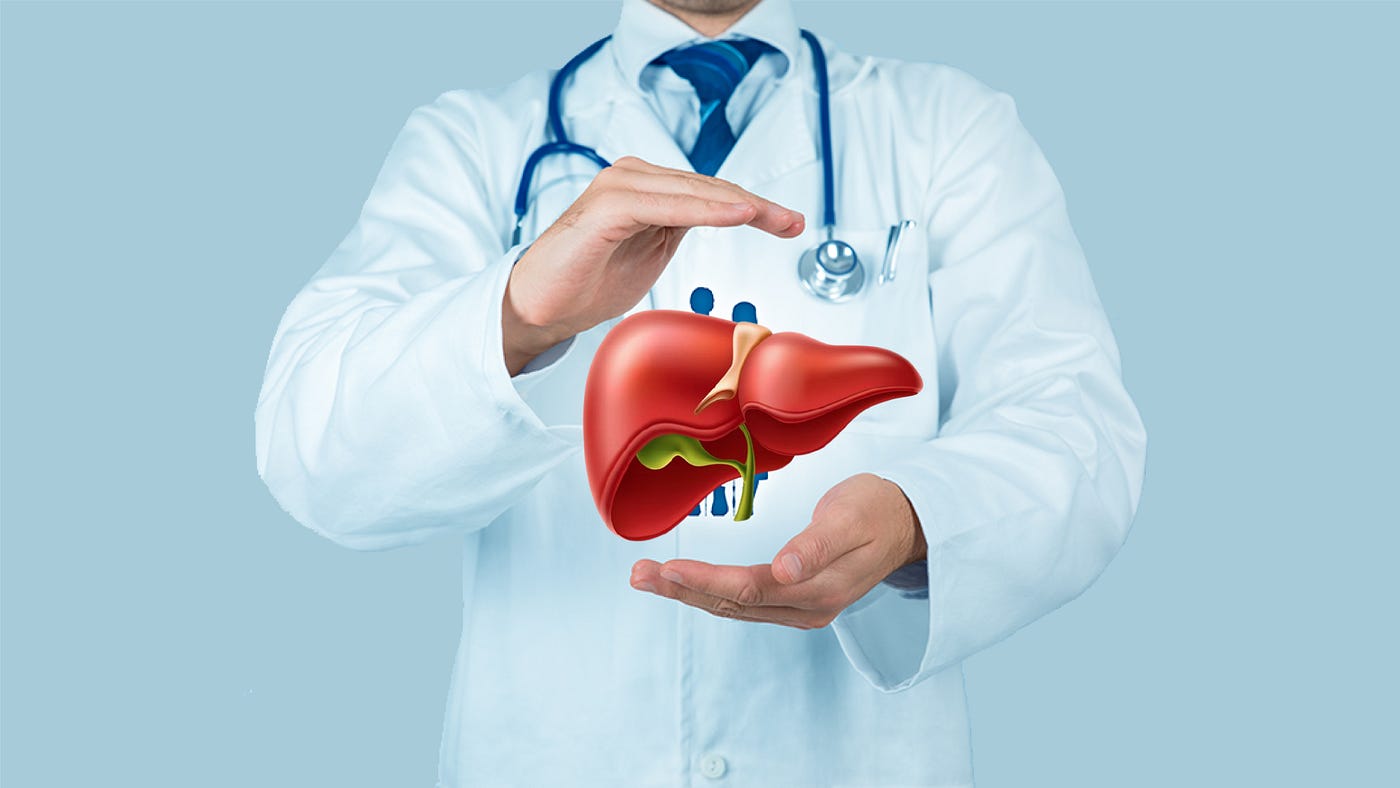
The liver is our most valuable organ completely capable of rebuilding itself. In the liver lies the strength – the key to a healthier & disease-free life. The thousands of enzyme systems that control virtually every body activity are created here. If your liver fails to create even one of these enzymes, overall body function is impaired, creating greater metabolic stress on your body.
Modern lifestyles can overstress your liver. Alcohol, tobacco, environmental pollutants, food additives, agricultural pesticides, popular cosmetic ingredients, common household products, stress, pharmaceutical and OTC (over-the-counter) drugs (including oral contraceptives and caffeine), gallstones, home repair materials, artist materials, garden chemicals and building materials can all kill liver cells.
Below are ten signs that your liver needs help:
1- Abdominal bloating: When fluid builds up inside the abdomen, it is known as ascites. Ascites usually occurs when the liver stops working properly. Fluid fills the space between the lining of the abdomen and the organs. A large amount of ascites can make you look and feel like you’re several months pregnant. Bloating accompanied by ascites (fluid in the belly) and jaundice (yellowing of the eyes and skin) may be a sign of cancer that’s spread to the liver or of primary liver cancer, which can develop in people with a history of hepatitis or heavy alcohol use.
2- Pain or discomfort over the liver – (right upper abdominal area under the rib cage) Liver pain is felt in the upper right area of the abdomen, just below the ribs. Usually, it is a dull, vague pain though it can sometimes be quite severe and may cause a backache. Sometimes people perceive it as pain in the right shoulder. It is often confused with general abdominal pain, back pain or kidney pain. It can be hard to pinpoint the exact location or cause of such pains, so it is important to see a doctor. Doctors may do blood tests, ultrasounds or biopsies to determine the cause of pain.
3- Excessive abdominal fat, Pot belly or a roll around the upper abdomen: As people go through their middle years, their proportion of fat to body weight tends to increase — more so in women than men. Extra pounds tend to park themselves around the midsection. One of the reason excess visceral fat is so harmful is its location near the portal vein, which carries blood from the intestinal area to the liver. Substances released by visceral fat, including free fatty acids, enter the portal vein and travel to the liver, where they can influence the production of blood lipids. Visceral fat is directly linked with higher total cholesterol and LDL (bad) cholesterol, lower HDL (good) cholesterol, and insulin resistance.
4- Trouble digesting fatty foods: Your liver cells make fluid called bile, which is secreted into the bile ducts and then flows to the small intestine. Your gallbladder stores bile; when you eat a meal that contains fat, your gallbladder contracts to release concentrated bile into the small intestine. If your gallbladder is not functioning well, you will not release adequate bile into the gut. According to the National Institute of Diabetes and Digestive and Kidney Diseases, or NIDDK, fat molecules are a rich source of energy for your body. Many of your organs participate in the digestion of fatty foods. In most cases, fatty foods are easily digested. However, certain medical conditions may impair your body’s ability to break down fat, causing health complications that range from mild to severe.
5- Had your gallbladder removed: If you have lost your gallbladder you will not be able to concentrate or store bile for the extra spurt of bile you need when you have a meal. Removal of gall bladder leads to reduced ability to absorb fat-soluble vitamins – these are vitamin E, vitamin A, vitamin K and vitamin D and they need efficient digestion of fats to be absorbed; thus you can become depleted of these fat-soluble antioxidants, poor elimination of toxins via the bile (these are eliminated in the bowel actions) and poor breakdown and digestion of fats.
6- Acid reflux/heartburn: When you eat, food passes from the throat to the stomach through the esophagus. A ring of muscle fibers in the lower esophagus prevents swallowed food from moving back up. These muscle fibers are called the lower esophageal sphincter (LES). When this ring of muscle does not close all the way, stomach contents can leak back into the esophagus. This is called reflux or gastroesophageal reflux. Reflux may cause symptoms. Harsh stomach acids can also damage the lining of the esophagus.
7- Dark spots on the skin commonly referred to liver spots: Liver spots are medically termed ‘Lentigos” and also known as age spots. They are sharply defined light brown to black flat patches of skin that appear on the face, back of the hands and other areas of the body; they look somewhat like a large freckle. They vary in size. Improving the liver function is important to prevent and manage skin conditions of any description including liver spots, as the liver is the major filter of the blood, clearing it of toxins that can build up in the system and create free radicals which promote cell damage in the skin.
8- Overheating of the body & excessive perspiration: When the liver is overworked or under pressure, it generates too much heat within itself. Because the liver is such a large organ this causes our whole body to overheat. The excess sweating is a reaction of the overheated body to cool body temperature and allow increased excretion of toxins through the skin. These symptoms are very unpleasant especially if you live in a hot, humid climate and the associated fatigue can be overwhelming.
9- Acne/rosacea or itchy Blotchy skin: Your liver acts as a filter. It literally cleanses your bloodstream of the toxins you are exposed to each day, and the waste products of metabolism that your body generates each day. If your liver is not able to detoxify your bloodstream adequately, toxins must find an alternative route of excretion. Typically this is the skin. Acne is very common in people with a sluggish liver and lazy bowel.
10- Unexplained weight gain and inability to lose weight even with calorie restriction: Fat accumulation in your liver can decrease your body’s normal responses to a substance called insulin, which is produced in your pancreas and helps control the amount of glucose or sugar in your bloodstream. In turn, resistance to insulin’s effects can eventually trigger the onset of type II diabetes. Unprocessed fat in your liver can damage your health by entering your bloodstream and increasing your chances of developing serious cardiovascular problems. In addition, most people who develop NAFLD are obese or significantly overweight and have to deal with the extra health complications associated with carrying high levels of excess body fat.
If you are taking prescription medications such as cholesterol lowering drugs, pain killers, the oral contraceptive pill, oral estrogens, cortisone or anti-inflammatory drugs, your liver cells may not produce adequate amounts of healthy bile. Your poor liver will not cope unless you give it extra help. Toxins will accumulate in your liver and cause your complexion to deteriorate; you may find that you see the appearance of brown liver spots on your skin.
Other signs to watch for include high blood pressure, fatigue, high cholesterol and triglycerides, mood swings and depression, sleep apnea or snoring and fatty yellowish lumps around eyes.
These are signs you need to take action, detox and alter you diet and lifestyle to heal your liver.

